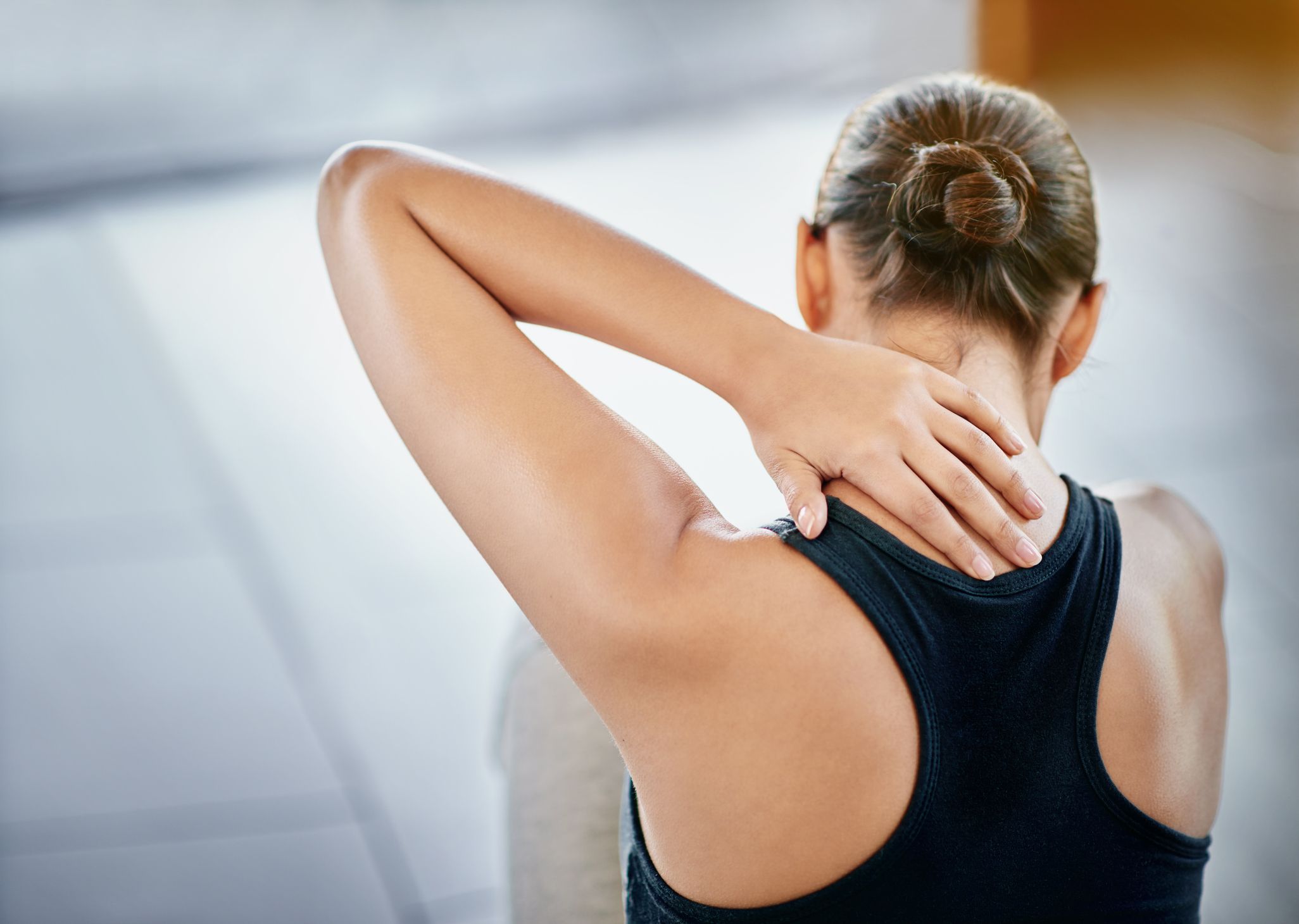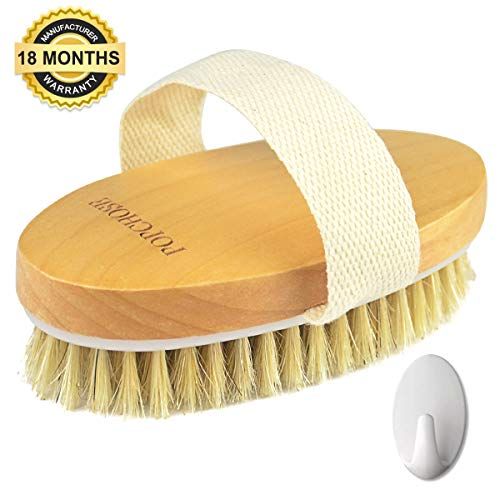Pull up a spa menu online and there’s a solid chance you’ll see a lymphatic drainage massage on there claiming to help flush toxins, amp up immunity, and nix water weight and bloat. All the cool kids are doing it: Hailey Biebs and Selena Gomez were spotted getting the treatment, and Meghan Markle once raved about a lymphatic facial. Heck, Chrissy Teigen rocked a lymphatic massage jacket recently.

Why the obsession? Let’s start with a bio lesson (it’s a quickie, promise). The lymphatic network—a network of vessels and organs—lies under your skin. It’s a crucial part of the immune system and works kind of like a garbage disposal (totally not gross!). “It acts like a sanitation system for our body by getting rid of ‘waste’ that our body naturally produces, or other things that can invade our body, like bacteria,” says Linda Koehler, PhD, an assistant professor of physical therapy and rehabilitation medicine at the University of Minnesota. “It’s what protects us from getting an infection.”
The thinking is that if you’re puffy, sick, achy, exhausted—you get the gist—unclogging the pipes via a fancy rubdown may help. But it’s tough to know what’s for real and what’s pure fiction when it comes to the remedy—and whether you actually need to do anything (like get a special massage) to keep the system clean. Clarity, right this way.
How do lymphatic drainage massages work?
Therapies marketed for this purpose are usually gentle and use specific techniques to move fluid around the body more effectively. “It is not like a regular massage, which has a deep pressure that massages the muscles,” Koehler notes. “The massage has a very light pressure because the lymphatic system is close to the surface of the skin.”

There’s a specific sequence to lymphatic massage, she adds. In general, the massage is performed proximal to distal (starting in the central part of the body, then moving towardsthe extremities). “You would first start by massaging the regional lymph nodes—the lymph nodes that drain a specific area—to ’empty’ the nodes to get them ready to take on more fluid,” she explains. “It’s like ’emptying’ a glass before you fill it again. You would then start massaging the area that drains towards those lymph nodes that are ready to take on more fluid.” Sounds relaxing.
https://www.instagram.com/p/B9R0HS8nDTB/
A post shared by Flávia Lanini™️ (@flavialanini)
Tell me: Do lymphatic drainage massages actually improve your health?
The thinking is that a “clogged” lymphatic system equals all sorts of health problems—and that can be true. Cells depend on lymphatic fluid (which, btw, is full of disease-fighting white blood cells) to transport substances, communicate with other cells, and help them carry out their duties.
So, a damaged network can screw up those processes, contributing to issues such as lymphedema, chronic swelling in a specific area of the body, says Koehler. “In the medical field, we use manual lymph drainage to help people who have had damage to their lymphatic system following surgery, trauma, or developmental disorders,” she says. “In this case, manual lymph drainage can be beneficial because there are specific techniques to assist with moving lymphatic fluid out of the damaged areas to other areas in the body that are functioning normally.”
Try adding quick cold-water rinses to your shower to boost lymphatic flow.
As Koehler explains, most of the time, impaired or plugged-up lymphatic vessels are the result of surgery, infection, trauma, or diseases such as cancer or autoimmune disorders. Read: So a broken system *does* matter, but if there was a problem with yours, you’d know it.
Now for the question of, what is lymphatic drainage massage good for if I’m healthy? Answer: Probs nothing more than relaxation and maybe some mild tension release. Your system is likely working just fine, says Koehler, adding that there’s no evidence the average person benefits from the massages. But hey, bodywork in general just feels pretty damn relaxing—so if you dig a service with lymphatic in the description, you do you.
Are there any weight loss benefits? Lymphatic massage before-and-after photos are wild.
When you take a look at before-and-after pics, the slim-down effects look r.e.a.l. See for yourself in these snapshots, pulled from a few popular, celebrity-backed spas and/or therapists:
https://www.instagram.com/p/Bz0_x5JHQ-G/
A post shared by Flávia Lanini™️ (@flavialanini)
https://www.instagram.com/p/B8z85vsB3nT/
A post shared by Camila Perez (@camilaperez.mt)
https://www.instagram.com/p/BysvCulBfen/
A post shared by Camila Perez (@camilaperez.mt)
The thing is, actual fat loss isn’t happening (at least, there’s no research to back that up!). Instead, lymphatic drainage may help reduce water retention and bloat, according to anecdotal evidence and reviews, which may have a temporary visual slimming effect (keyword: temporary). Famed massage therapist Flavia Lanini, who has worked with countless celebrities and supermodels, described to Us Weekly in December that lymphatic massage can “promote a contouring effect while also promoting relaxation.” (That’s likely what you’re seeing in before-and-after pics!)
Koehler points out, however, that bloating is a symptom that someone who has a normal functioning lymphatic system experiences. “Bloating will eventually go away on its own,” she adds—without a special rub.
So, at most, you may experience a reduction in bloating post-lymphatic massage, but don’t expect the results to last forever, and don’t rely on a massage for weight loss.
Can I take care of my lymphatic system any other ways (sans pricey massage)?
Yes! The primary drivers of lymphatic movement are activity and breathing. “Exercise will move fluid in a similar manner and has all the other additional benefits,” Koehler says. Try these DIY tricks to help keep your system running smoothly:

- Go for a gentle run. Even a 15-minute jog while focusing on deep breaths—the kind where you push your belly out as you pull air in and contract it as you exhale—does the trick. These two things help your body shift fluid around and get rid of metabolic waste without overtaxing your system, says Iris Wang, a Boston-based manual massage therapist.
- Buy a dry brush. Dry-brushing your skin in circular motions (yes, this is a real thing, not just for influencers!) helps rev your internal flow, Wang says.
- Hit the pool. Swimming is excellent for lymphatic movement, Koehler says. “The pressure of the water against the body provides a built-in ‘compression’ that also helps lymphatic circulation, plus there’s an increase in deep inhalations from the aerobic workout,” says Koehler.
- Try contrast hydrotherapy. Alternating between hot and cold water improves blood movement through the arteries, says Koehler. Some experts speculate it could improve lymphatic circulation too—but there isn’t solid evidence yet. There’s no harm in trying it: Switch from one minute of hot water to 30 to 60 seconds of cold water three times at the end of a shower, says Wang.
- Tap it out. Your skin, that is. Another of Wang’s tricks to encourage lymphatic movement is tapping the area above the collarbones with a cupped hand; this stimulates lymph capillaries below the skin, she says.
The bottom line: You don’t *need* to get lymphatic drainage massages if you’re healthy. But if you enjoy the technique, there’s no harm in getting the service. Enjoy.
Source: Read Full Article
